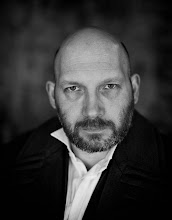
Some writers can stun you with the brilliance of their prose, others with the brilliance of their idea and some – a precious few – can do both. Theodore Sturgeon could do both.
Stories like Microcosmic God, The Hurkle is a Happy Beast, Yesterday Was Monday and The World Well Lost are wonderful pieces from what could be called the Time When Science Fiction Grew Up, that period when SF was doing its best to shake off the lingering smell of the pulps and evolve into something new, something literate, something relevant rather than merely escapist. Theodore Sturgeon was one of the writers in the very forefront of this movement.
The Graveyard Reader (1958) is probably a minor addition to the Sturgeon canon (although it was one of Boris Karloff’s favourite short stories and, indeed, I first read it in a tattered copy of The Boris Karloff Horror Anthology) but, to my mind, is a dazzling display of writing by a virtuoso.
Like some of the best stories in the world, the set up is deceptively simple: the unnamed narrator has recently been widowed, his unfaithful wife dying in a car crash with her latest lover. Distraught by her death and furious at her infidelity he has elected to leave her grave blank, refusing even to have an inscription on the headstone that was ‘included in the price of the plot’.
While visiting the grave he meets a mysterious, bland man – the Graveyard Reader of the title:
All I got out of him (just then) was a pleasant smile. He had a sort of anybody’s face, the like of which you might encounter anywhere, which is to say he had the kind of face you wouldn’t be surprised to see visiting a cemetery. I’ll say this for him; he was harmonious; his voice and clothing exactly suited his face, and though he wasn’t an old man, the things he said were hard to figure, coming from a man like that. You could tell he was experienced.
More than simply experienced, the man has a strange and unique talent… the ability to read graves:
“… what you’re trying to tell me is that a person who can read graves can stand in front of one and read it like a book.”
“A biography.” He nodded.
“And get out of it everything that person ever did.”
“Or said, or thought,” he agreed.
Initially sceptical, the narrator comes to accept the truth of this and, more than that, want to learn to read graves himself – if only to understand how and why his wife lived and died as she did.
I guess at that point I stopped talking out loud, because it all turned into a series of swift pictures, one after the other, inside my head, too fast for words, and too detailed. What’s the matter? I’d be saying, and her, kissing my hands, looking up at me with tears in her eyes: Can’t you see? And again, me yelling at her, Well if what I do makes you unhappy, why don’t you tell me what you want? Go ahead, write the script, I’ll play it. And the way she’d turn her back when I talked like that, and I’d hear her voice softly: If you’d only and I’d just – and then she’d stall, inarticulate, shake her head. She never talked enough. She never said the things that… that… world of feeling, spectrum of sensitivity, and no words, no dammit, dammit words. Picture of her smiling, looking off, out, a little up: I say, What are you so happy about?
After studying for a year, beginning with the graves of infants (“You don’t use Dostoyevsky as a first reader.”), the narrator learns this macabre new skill. In the end, though, he elects not to use it and allow his dead wife to rest in peace.
As a literary meditation on grief, The Graveyard Reader has rarely been surpassed in speculative fiction and the narrator’s inarticulate rage fairly leaps out at the reader. But it is Sturgeon’s writing that really lingers in the mind.
Controlled, precise, its cadence and rhythmic structure is nothing short of remarkable for what is ostensibly just another macabre story.
My hands got all knotted up and then seemed to get too heavy, pulling my shoulders down into a slump. I sat down on the edge of an iron pipe railing at the edge of the next grave and let the heavy hands dangle down between my thighs. I hung my head down so I could watch them while I talked. Watching them didn’t tell me anything.
A superb and chilling little tale from the man that Kurt Vonnegut called "a master storyteller."








